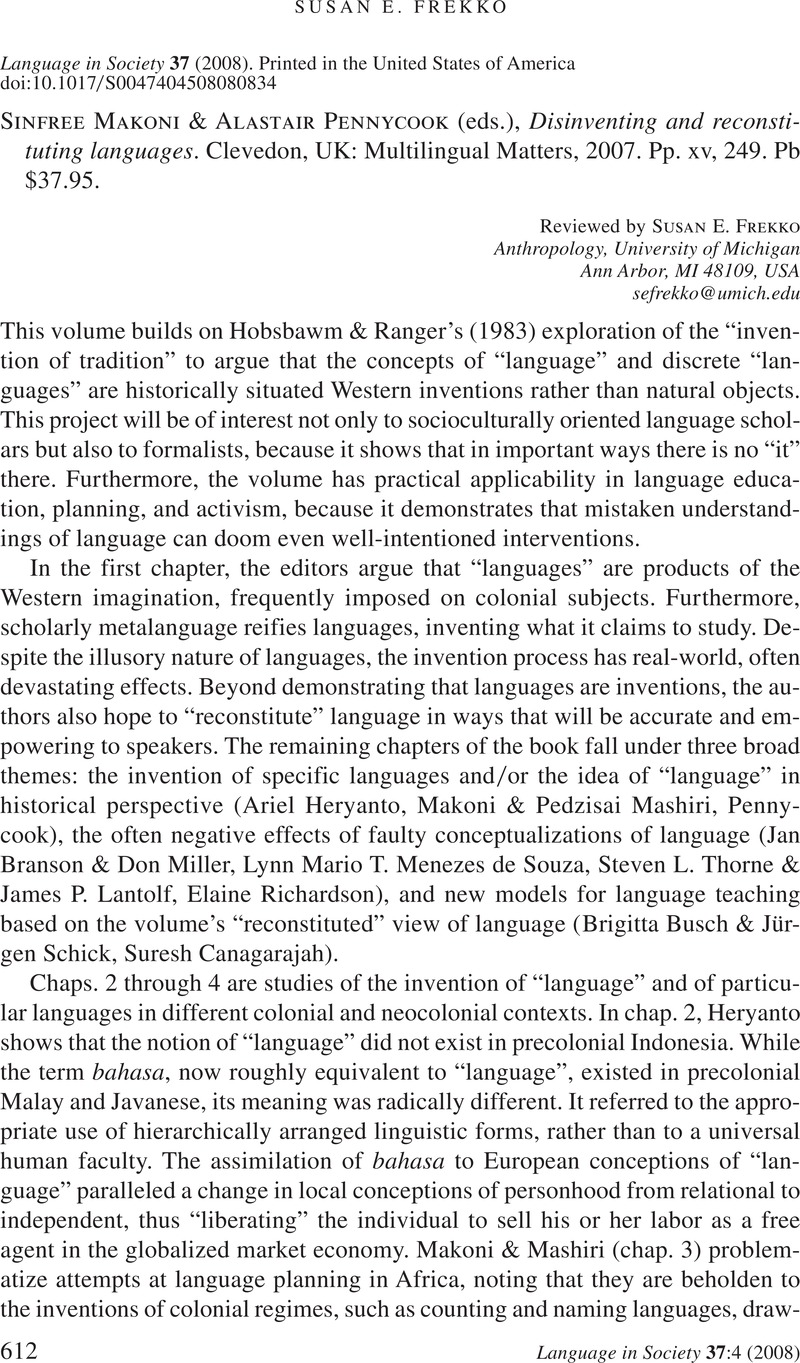Crossref Citations
This article has been cited by the following publications. This list is generated based on data provided by Crossref.
Choi, Lee Jin
2018.
EMBRACING IDENTITIES IN SECOND LANGUAGE LEARNING: CURRENT STATUS AND FUTURE DIRECTIONS.
Problems of Education in the 21st Century,
Vol. 76,
Issue. 6,
p.
800.
Pinardi, Stefano
Salis, Matteo
Sartor, Gabriele
and
Meo, Rosa
2023.
EU−Africa: Digital and Social Questions in a Multicultural Agroecological Transition for the Cocoa Production in Africa.
Social Sciences,
Vol. 12,
Issue. 7,
p.
398.
Motswaledi, Thabang Richard
and
Marumo, Phemelo Olifile
2025.
The Role of Language through Media in Shaping the Political Outcome in South Africa: Review of 2024 Election Outcomes.
E-Journal of Humanities, Arts and Social Sciences,
p.
604.



